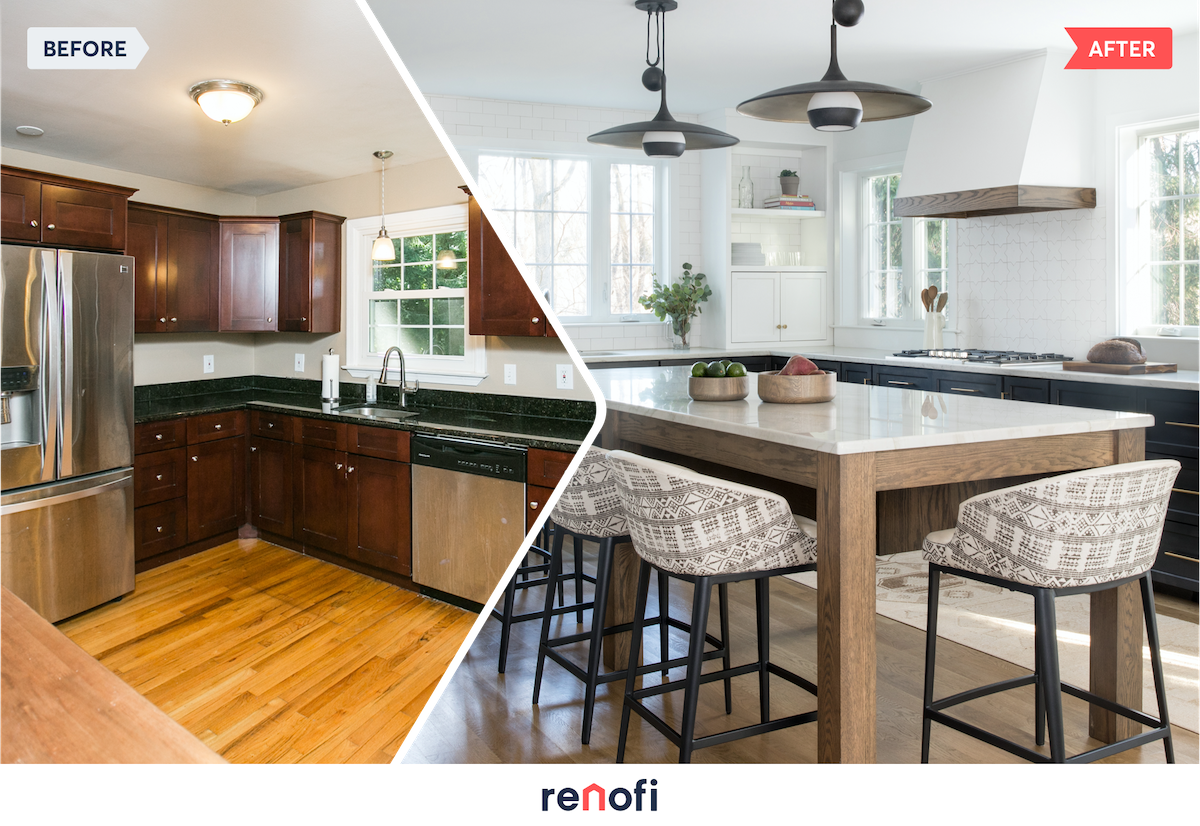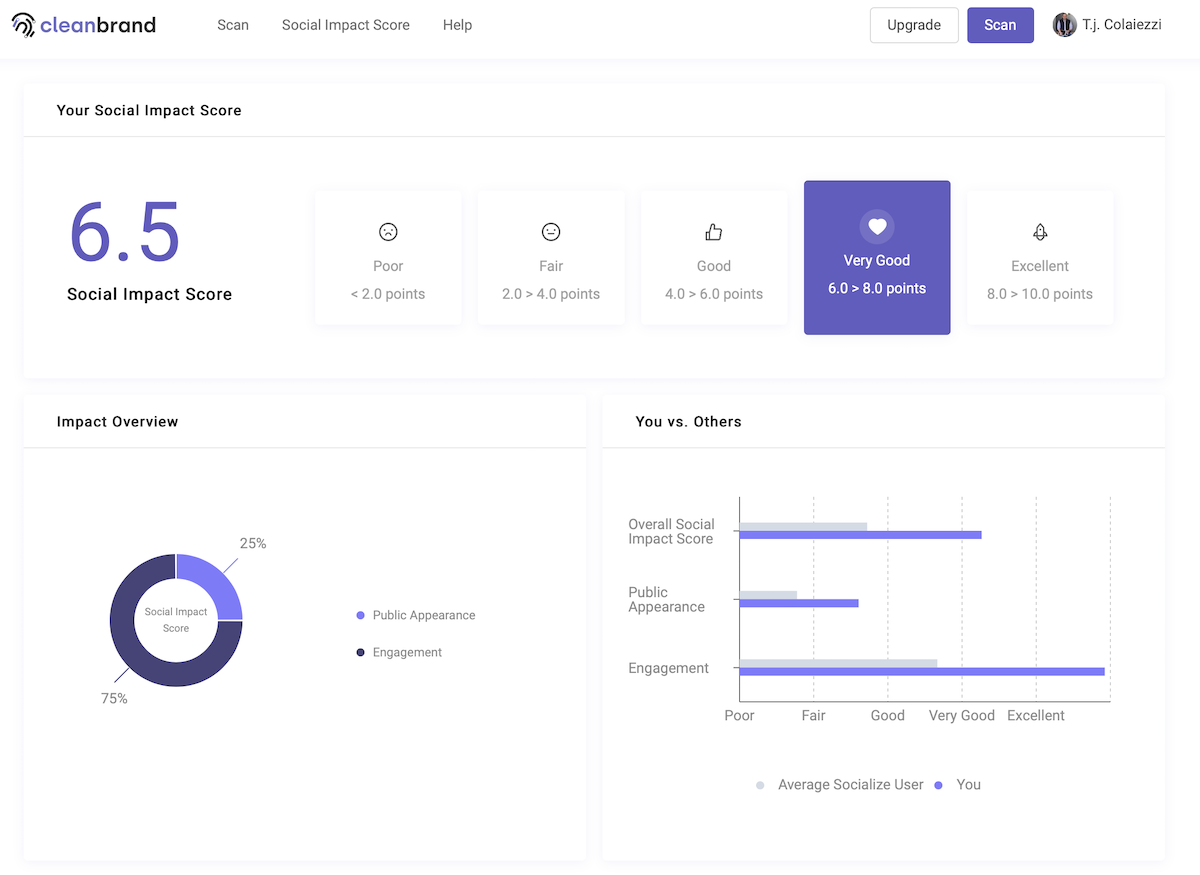New year means new list of promising local startups to watch.
Each January at Technical.ly, it’s become tradition for the reporters in each of our mid-Atlantic markets to pore over their notes, check in on past coverage, and keep our ear to the ground to learn about the most intriguing and innovating tech companies that are making “real” impact in our respective cities.
We’ve now been naming companies as RealLIST Startups — young tech companies with impressive missions, goals, money moves or founders — for the last five (!!!) years. And it’s truly a delight in 2021 to celebrate the good this year’s companies are bringing to the Philly region’s tech scene amid a year of overwhelming challenges.
Last year’s list calls out a host of companies working within healthcare, robotics, B2B and medicine — some of Philadelphia’s strongest tech industries. (Be sure to check out our lists from 2019, 2018 and 2017, too.) While nothing has inherently changed about what qualifies a company to be considered a RealLIST startup, this year, companies with unique solutions to ever-present problems, an honorable mission or an intriguing founder story piqued our interest more than usual.
As always, the companies chosen fit these criteria:
- Founded no earlier than 2018, or three years ago, thanks to our 2012 definition of a startup
- Make the lion’s share of their revenue from a specific product offering — so, no agencies
- And have not been through a significant exit event like a merger or acquisition
2020 put many of us through the ringer, and many of these tech startups pivoted or accelerated their goals or were founded as a solution to one of the many problems the pandemic created. Take a look and take note of these up-and-coming Philly startups:

10. Lula

Lula app (Courtesy image)
The young team behind this eco-conscious convenience store delivery startup regrouped in early 2020 after their last startup, Vyb, didn’t survive the early months of the pandemic. Cofounders Adit Gupta and Tom Falzani took the lessons learned with Vyb and launched this new venture with a quick turnaround and are leaning into a need the pandemic has presented for many. The pair launched Lula, a convenience store delivery subscription service that allows folks to order from places like 7-Eleven or their local corner store for a flat weekly, monthly or yearly delivery subscription fee.
The startup is active in the Philly and South Jersey areas, and pushes for carbon-neutral delivery methods like bike, scooter or electric cars. They also go for reusable totes over plastic bags, and partner with local sustainable food companies like Simply Good Jars. They brought a lot of lessons learned — like keeping the team trim and finding product market fit before launch — with them from Vyb. All of the team’s advisors also stayed on to counsel on the new startup, and Gupta received funding from Philly Startup Leaders’ Underrepresented Founders Fund this past fall. We expect this startup to make some smart moves in 2021.
9. Percepta

Simulation of Percepta’s AI technology. (Courtesy image)
This nearly two-year old startup uses “ethical” AI to anonymize shoppers’ race, gender and age for loss-prevention teams to weed out racial profiling in shoplifting monitoring. Percepta was founded by five then-University of Pennsylvania students in 2019, and uses AI to track shoppers’ body movements — scanning for employees, looking up for cameras or putting products in their clothing. Then, an image of a person the tech found highly probable of having shoplifted is sent via a mobile app to the store’s loss prevention team, who ultimately make the decision to intervene or not.
The team went on to participate in a handful of local accelerators, Pennovation Center’s summer 2020 cohort and the Comcast LIFTLabs accelerator in fall of 2020. As of December, the team was testing its product in retail stores in New York City and Philadelphia, looking to partner with big-box stores, and had received an investment of more than $1 million from a strategic investor.
“It’s a social good, but it’s also a competitive advantage,” CEO and cofounder Philippe Sawaya told Technical.ly last year. “We’ve seen that the public perception of AI is that it can be biased, and the public just isn’t going to accept that.”
8. CareAlign

CareAlign founder Dr. Subha Airan-Javia. (Courtesy photo)
This health IT company which makes a clinical workflow platform used by physicians, has been steadily seeing growth over the last few years since it launched in 2018. The startup, founded by CEO Dr. Subha Airan-Javia, was originally developed at Penn’s health system. Earlier this year, it raised a $1 million seed round and rebranded from its former name, TrekIt Health.
The rebrand comes along with a new partnership with HealthShare Exchange, a nonprofit that makes electronic patient health info available securely at healthcare systems throughout Greater Philadelphia and the Delaware Valley, and will allow data and tech companies to access a larger pool of patient data in order to make better clinical decisions. The startup makes the list this year after appearing on 2020’s as a runner up.
7. Stix

Stix cofounders Jamie Norwood (L) and Cynthia Plotch. (Courtesy photo)
When this millennial-focused fertility startup launched in 2019, cofounders Cynthia Plotch and Jamie Norwood had no idea how salient their business idea would become. The model behind Stix — a pregnancy and fertility startup that ships tests directly to a customer’s house and offers a subscription service — was formed after the cofounders, both former Venture For America fellows, had uncomfortable experiences purchasing fertility products.
Amid the pandemic, the subscription and mail-based service became increasingly important for women who needed access to fertility care, especially when folks wanted to limit leaving the house. In the spring, the pair also launched a virtual “sanity series,” free wellness and health advice from doctors and therapists about relationships, physical and mental health. Plotch and Norwood participated in the Entrepreneurs Roundtable Accelerator in New York City in 2019, and work out of coworking space Offsite in non-pandemic times. The duo raised a $1.3 million seed round last summer, and hired a few additional team members (plus one VFA fellow).
6. Cesium

A Cesium image of the Space Shuttle Discovery. (Courtesy image)
This 3D geospatial data biz spun out from Analytical Graphics Inc. to form its own company in 2019. Cesium started as a project at AGI in 2011 when a team set out to fill a need for temporal geospatial visualizations on the web and the first iteration was CesiumJS, an open-source 3D visualization engine. Since 2019, the company has raised a $5 million Series A, and set up shop in Center City’s coworking space The Yard.
In its two years as a company, Cesium has worked with National Geospatial Agency to build a 3D web visualization of its Map of the World, with Firefox to add real-world 3D data to its virtual reality framework and with the Toyota Research Institute uses Cesium to visualize the 3D environment captured by sensors on their autonomous cars. It also works with the North American Aerospace Defense Command, which uses Cesium to track Santa’s path around the globe each Christmas Eve, and in 2020, worked with the Smithsonian Institution on its Open Access Initiative to make potentially hundreds of thousands of 3D images shareable with the public.
5. RenoFi

A RenoFi before and after. (Courtesy image)
This 2018-founded fintech startup was cofounded by former Zoomer execs Justin Goldman, Robert Shedd and Lee Miller and aims to help lenders and potential loan seekers who want to start a home renovation project but might not yet have the equity to tap. Its fintech platform, used by lenders, assesses the credit underwriting, evaluates the applicant’s financial background and runs a renovation underwrite to determine if the project is valuable and the scope of the project and budget line up. The enterprise software now serves lenders in almost every U.S. state, and the pandemic has sped business, as more people spend more time at home and look to renovate.
The startup has seen impressive investments, from Brendan Dickinson of Canaan Venture Partners with participation from Comcast Ventures and First Round Capital, for a total of $7 million in capital. The team is 100% distributed, although the cofounders said last summer that about half of their 15-person team live in the Philly area; that total count is now more than 20.
“Homeowners only typically do this once, maybe twice in their life,’ Goldman told Technical.ly last summer. “They are not experts in it, and having a trusted set of third-party eyes is invaluable.”
4. Nextmv

Carolyn Mooney. (Courtesy photo)
This data engineering startup is the creation of cofounders CEO Carolyn Mooney and CTO Ryan O’Neil, alumni of startups Zoomer and Grubhub, where they built the algorithms to consolidate and automate deliveries and managed large distributed teams. The company launched in July 2019, and helps with the logistics of what Mooney called “manual chaos,” or the disorganization that can come from a human needing to plan decisions within a system. The Nextmv software essentially helps maximize any KPIs — food order to door delivery, or costs and time spent on shipping, Mooney said.
The pair has steadily added to its distributed team, including Head of Revenue Andrew Hoagland (who wrote about shutting down his RealLIST startup Vetd early last year). Nextmv also launched a new website last summer, raised $3.4 million in funding and participated in Y Combinator’s 2020 cohort.
3. Black and Mobile

Black and Mobile’s David Cabello (right) and Aaron Cabello. (Screenshot via YouTube)
This 2019-founded food delivery startup connects its users with local, Black-owned restaurants. The company was founded by brothers David and Aaron Cabella in February 2019 after David Cabella’s experience working as a driver for food service apps like Postmates and Caviar inspired the brothers to make sure money was circulating in the Black community.
Since it launched about two year ago, the company has upgraded its app; expanded its service to Detroit, Baltimore and Atlanta; and appeared in the music video for “Entrepreneur,” the song from Pharrell Williams and Jay-Z that featured 33 Black-owned business owners. Black and Mobile was also voted Philly’s Startup of the Year in the 2020 Technical.ly Awards.
“I hope the trend doesn’t fade away,” David Cabello told Technical.ly last year. “Supporting us is a must. It’s all cool now but in a few months they may forget about it. We’ve been enslaved and locked in a box economically. It’s not about Black Lives Matter. We need our own economic structure. We don’t even get reparations. Tech is one thing but working for ourselves is important.”
2. LifeBrand

LifeBrand’s platform. (Courtesy image)
This 2019-founded, Newtown Square-based startup has seen a lot of growth in the last year after founder Thomas Colaiezzi left the fitness industry to launch this social media company. LifeBrand uses AI and machine learning technology to scrub the platforms of a social media user for potentially “harmful” posts. That could mean anything from curse words to racist language to bashing a competing company online.
Colaiezzi recently pitched the company to “Shark Tank’s” Kevin O’Leary in a StartEngine pitch competition, and walked away with $10,000. The company also recently raised a $1 million seed round from new VC firm Juno Search Partners, allowing some ahead-of-schedule hiring to its quickly growing team, and recently signed former Philadelphia Eagles player Trent Cole as a brand ambassador.
“You know, the feeling is that people generally understand what is or isn’t OK to put out there online,” Colaiezzi said last year. “But we’re finding out it’s not as ‘common sense’ as we might have thought.”
1. Misfits Market

A Misfits Market box. (Courtesy image)
This North Philly-founded startup that aims to decrease food waste and increase access to healthy foods has exploded with growth in the three years since it was launched by founder and Philly native Abhi Ramesh. The startup was founded in 2018, and the following year, moved just over the bridge in South Jersey for better access to its growing shipping and distribution facilities.
In the summer of 2019, Misfits Market raised $16.5 million as the subscription service expanded over the East Coast, and in July 2020, announced an $85 million Series B, another sign of growth after the businesses saw nearly 500% increased demand in the early weeks of the pandemic and hired 100 people to keep up with demand. Ramish was also named to Forbes’ 2020 30 Under 30 List in the entrepreneurship category. He told Technical.ly recently that although current demand for the company’s services isn’t seeing as much exponential growth as back in March, he feels the market and customers is experiencing a shift in mentality.
“Really what these past few months have shown is adoption can accelerate much, much faster in certain circumstances,” he said.
###
And check out these honorable mentions, in no particular order:

Technical.ly Philly's RealLIST Startups 2021 is underwritten by Morgan Lewis. The list was independently reported and not reviewed by Morgan Lewis before publication.
Before you go...
Please consider supporting Technical.ly to keep our independent journalism strong. Unlike most business-focused media outlets, we don’t have a paywall. Instead, we count on your personal and organizational support.
Join our growing Slack community
Join 5,000 tech professionals and entrepreneurs in our community Slack today!

Entrepreneurship is changing, and so is the economic development behind it

Tech Hubs’ new $210M funding leaves Baltimore and Philly off the table

Here’s what to know before using AI to craft your brand’s social media posts


